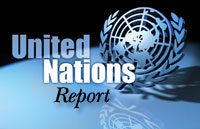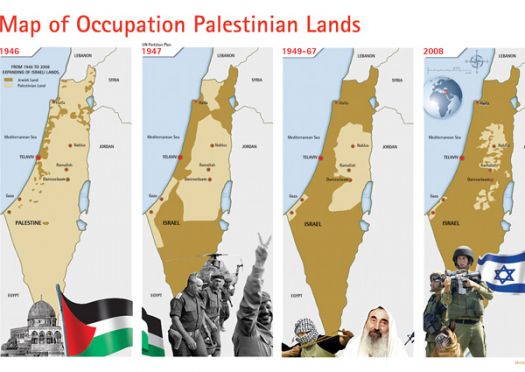By Saeed Shabazz-Staff Writer-

UNITED NATIONS – A five-member panel of experts recently gathered in Beijing, China for a one-day discussion about the way forward for the international community in restarting peace talks between the Palestinians and Israelis.
The discussion didn’t produce much optimism and highlighted UN failures over several decades.
One of the purposes of the gathering was to give a candid assessment of United Nations’ ability to rise above the status quo the world body has assumed concerning the on-again, off-again peace process.
Abdullah Abdullah, head of the Palestinian Legislative Council’s Political Committee in Ramallah, opened the discussion by saying the UN has been dealing with Israel’s occupation of Palestine since 1947.
He reminded the gathering that the UN Security Council declared inadmissible Resolution 242 (1967), the forcible seizure of territory.
Israel’s violations of that principle have been considered by the UN General Assembly and the Security Council, and resulted in adoption of numerous anti-Israel resolutions, said Mr. Abdullah.
Unfortunately, none have been implemented, he said.
That has led to the conclusion that the UN has become irrelevant to the Palestinian-Israeli conflict, and no force can stop Israel from violating the UN Charter, UN resolutions or international law, Mr. Abdullah continued.
Frenchwoman Christine Chanet, chairperson of the UN Human Rights Council’s Fact-Finding Mission on Israeli Settlements and a member of the Committee Against Torture, offered a candid assessment of Israel’s intransigence.
She recalled establishment in March 2012 of an independent, international fact-finding mission to examine the impact of Israeli settlements on the civil, political, economic, social and cultural rights of Palestinians. “The mission addressed many requests for cooperation to the government of Israel, but had received no answer,” she said.
Mr. Abdullah said one of the great ironies was Israeli government insistence that negotiations with Palestinians happen without preconditions, but Israel declared Jerusalem, settlements, and the Jordan Valley were non-negotiable because of their importance to Israeli military protection.
Panelist Mohammad Loulichki, Morocco’s ambassador to the United Nations, reminded the gathering that his delegation currently holds a two-year seat on the Security Council. He called for a revival of collective international engagement towards a two-state solution for the conflict.
Palestinians cannot be accused of not being a genuine partner for peace, the Moroccan ambassador said, pointing out it was the United States that sponsored the two-state vision and added momentum to the idea around the world. The U.S. gave rise to genuine hope that efforts by the Obama administration would lead to resumed negotiations and a political solution, added the diplomat.
“Yet, the expansion of settlements in the West Bank, including East Jerusalem, combined with Israel’s lack of engagement, has triggered pessimism about the two-state solution,” Ambassador Loulichki observed.
Admitting failure would mean that the United Nations and the international community have been unable to deliver on promises made 56 years ago to Arabs, particularly Palestinians, he added.
“Failure to reward the painful compromises made by the Palestinians with a solution based on United Nations’ resolutions would be a blow to the credibility of the United Nations,” Ambassador Loulichki warned.
Panelist La Yifan, deputy director-general of the Dept. of International Organizations and Conferences in China’s Ministry of Foreign Affairs, said, “To promote the just, peaceful and proper settlement of the Palestinian issue was in the interest of all people in the Middle East and in line with the wishes of the entire international community. The Security Council should send delegations to the region in order to gain a better understanding of the situation. It should also approve at an early date Palestine’s application for full United Nations membership.”
Nathan Stock was the only American speaking at the confab, but not as a panelist. He is assistant director of the Conflict Resolution Program at the Carter Center in Atlanta, Ga.
“The political dynamics in the United States made it tougher to maintain the kind of engagement that had led to past territorial withdrawals,” Mr. Stock conceded. But he believes President Barack Obama would like to see a two-state solution and Secretary of State John Kerry would like to make his mark by resolving the conflict.
“However, hopes of success would depend on President Obama deciding to use the full powers of his office to realize the creation of a Palestinian state,” said Mr. Stock.
Mr. Abdullah countered that the peace effort launched by Mr. Kerry faced a “near stalemate” owing to Israeli positions.
On June 18, the Guardian newspaper in London reported how a member of the Israeli cabinet told settlers in Jerusalem that Israel should annex large tracts of the occupied West Bank. The idea of a Palestinian state “is dead,” he said.
France 24, International News 24/7 reported on Twitter June 19 that Palestinian President Mahmoud Abbas said Palestinians support Mr. Kerry’s efforts to revive peace talks.
Meanwhile activists in 60 nations are marching and protesting the “illegal Zionist State of Israel” in a Global March to Jerusalem.
On June 7, Jews from Neturei Karta International/USA marched from the West Village in New York to the United Nations.
“We are marching for the freedom of Jews and all of Palestine,” said a spokesman. But such freedom remains a long way off.













